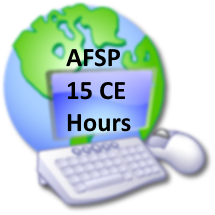Product Description
Delivery: Text Based
Instructor: WiseGuides
Credit Hours: 4
Field of Study: Federal Tax Update
Approval: IRS, CTEC
Course Description:
Why take this course? For tax year 2015, taxpayers reported nonfarm sole proprietorship activity on
approximately 25.2 million individual income tax returns using Schedule C forms. Most of these
represent small, often home-based businesses. (Reference: Fall 2017 issue of Statistics of Income
Bulletin.)
The following bullets highlight the reasons that tax preparers need to hone their skills in preparing
returns with self-employment income.
The IRS estimates that approximately one-third of the annual #mtax gap#m is a result of under-
reported income or over-stated deductions on Schedule C businesses.
Since self-employed income reported on a return that also claims the Earned Income Tax Credit
may be a high source of tax noncompliance, preparers are held to a higher due diligence
standard for such returns.
A number of taxpayers who have significant income from other sources reduce their taxable
income by reporting losses from activities that may or may not be engaged in for profit.
The IRS continues to review tax returns prepared by selected preparers and finds that many
have a high percentage of traits that typically indicates errors on Form 1040, Schedule C, Profit
or Loss from Business (Sole Proprietorship).
This 4-CE hour course, Avoiding Schedule C Tax Abuse, starts with determining if an activity is
engaged in with a profit motive versus as a hobby and how to report hobby income and related
expenses. Next, since falsifying income to claim tax credits remains a popular tactic to game the
system, IRS preparer oversight and return correspondence audit initiatives are presented.
Fundamental income and expense concepts of returns with self-employed income are next
presented including: the determination of reportable gross receipts and appropriate business
deductions, including a review of self-employment tax and net operating loss (NOL) rules.
> NOTE. As a basic level course, the content primarily focuses on the small home-based
business, which uses the cash method basis of reporting. Hence, issues such as advanced
inventory and cost-of-goods sold concepts are not addressed in this course.
After completing this 4-CE hour self-study online course, Avoiding Schedule C Tax Abuse, you will
be able to:
- Identify reporting requirements of Schedule C activity
- Identify taxpayers who are subject to the self-employment (SE) tax
- Identify treatment of various income items
- Identify basic concepts of calculating gross income and cost of goods sold
- Identify allowable deductions
- Identify the basic rules of Net Operating Losses (NOLs)




